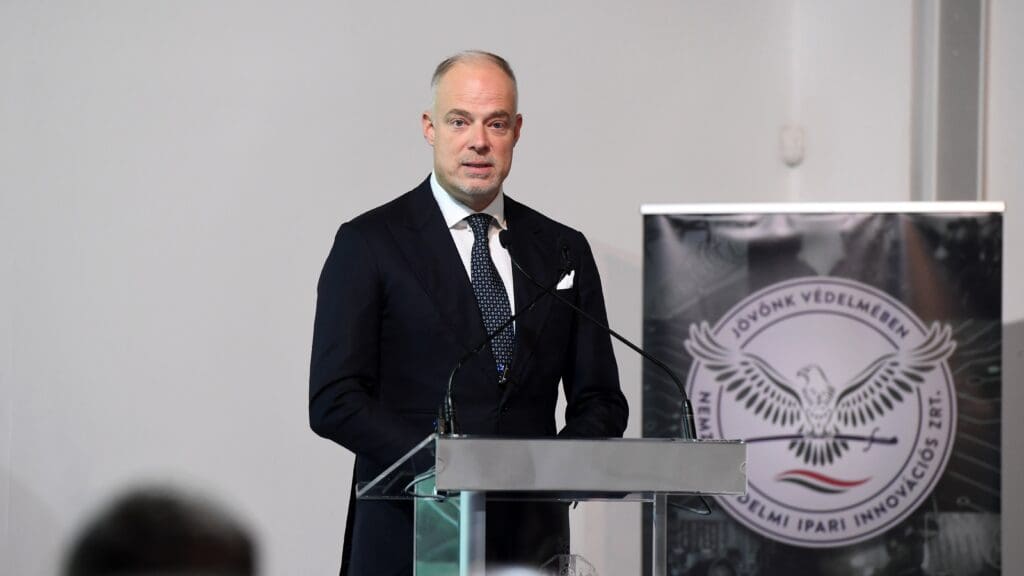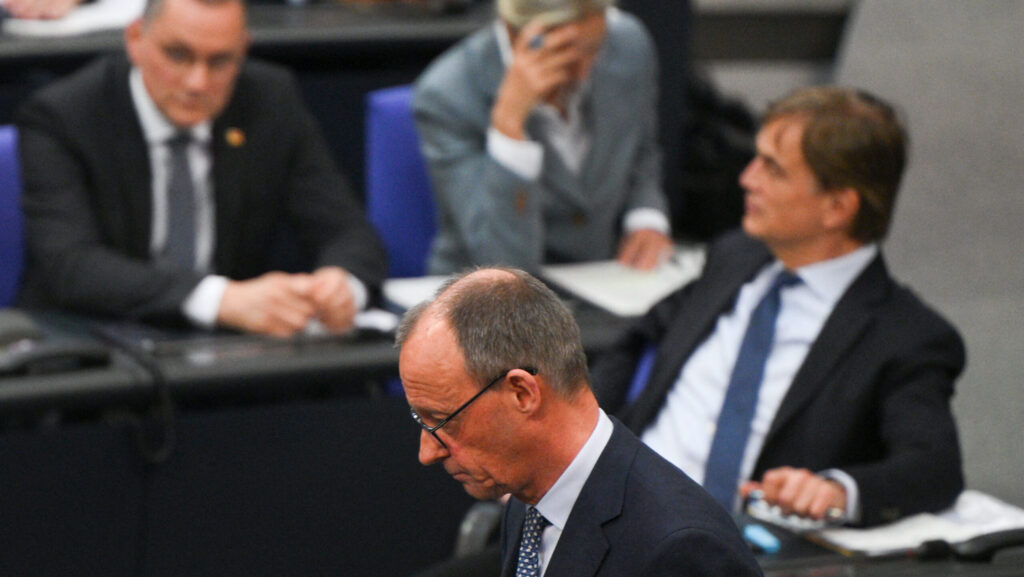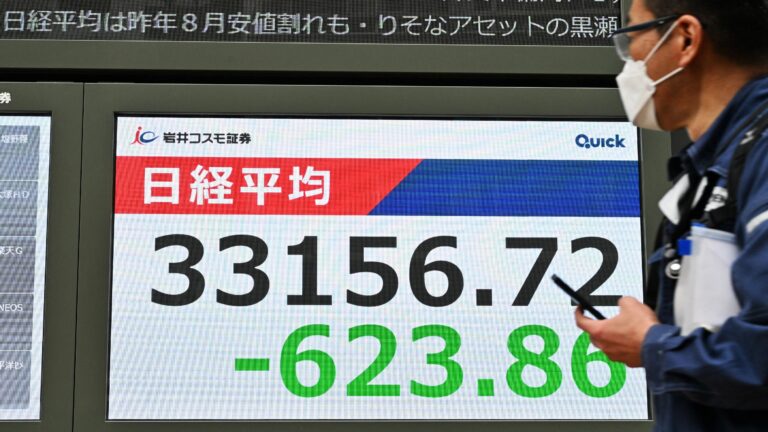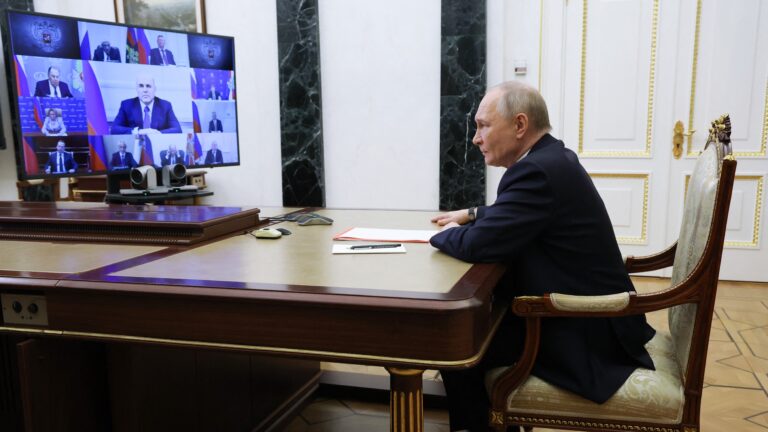The Financial Times published a letter on Friday by Hungarian Minister for EU Affairs János Bóka, responding to an earlier opinion piece by European Managing Director of the Eurasia Group Mujtaba Rahman. In his column, Rahman lamented that the EU must ‘face down’ Hungarian Prime Minister Viktor Orbán in order to protect Ukraine. He proposed achieving this through financial pressure—or, failing that, by suspending Hungary’s voting rights in the European Union.
In his response, Bóka outlined several arguments explaining why Rahman’s approach to the EU is fundamentally flawed and detached from reality. He concluded his letter with a powerful warning:
‘If you believe that the EU is at war, then all dissenting opinions will become existential threats. If you believe that you are fighting an external enemy, you will end up finding internal enemies that must be equally disposed of. Now it’s Hungary, but there will be plenty of other targets. The EU is not an external or internal war project. Let’s not allow it to become one.’
That made me think. And after quite a long chain of reflection, I came to a somewhat surprising conclusion: if we look at the crises that have damaged the EU in recent years, and evaluate them through the lens of the EU’s real interests, it becomes increasingly clear that Viktor Orbán is not the EU’s greatest threat—but its most pro-EU leader. In fact, he might be the only one.
Yes, at first it sounds strange. But let’s start with the war in Ukraine to illustrate what I mean.
Pro-Peace is Pro-EU
When Russia launched its full-scale invasion on 24 February 2022, the EU—as expected—condemned Moscow’s aggression and demanded an immediate withdrawal. Following the lead of the then-Biden administration in Washington—which had clearly played a role in escalating the conflict long before the invasion—EU leaders pledged unconditional support to Ukraine and began discussing military aid.
Orbán was among those who condemned the attack just hours after it occurred, declaring: ‘Together with our EU and NATO allies, we condemn Russia’s military attack’, while also making clear that sending troops or military equipment to Ukraine was ‘out of the question’. Hungary did, however, provide humanitarian aid and consistently advocated for peace from the very beginning.
It’s also worth noting that, at the time, the EU was far from the radicalized position it holds today. During the first year of the war, Germany initially ruled out sending tanks to Ukraine—and only relented after mounting pressure from the United States.
‘There is virtually no space for democratic discussion about the direction of the EU’s Ukraine strategy’
That kind of debate is no longer imaginable in today’s EU. There is virtually no space for democratic discussion about the direction of the EU’s Ukraine strategy, which has for months been based on mimicking Washington’s line and supplying endless military aid to Kyiv. The United States, under Donald Trump’s renewed leadership, has shifted direction entirely and is now actively pushing for peace. The EU, meanwhile, clings to a dead-end strategy, ramping up apocalyptic rhetoric about a Russian invasion of Europe—even though Moscow has never shown serious intent to carry out such an operation.
As part of this shift, Brussels is now preparing for a historic increase in defence spending and deeper integration of common defence capabilities—something that could benefit Europe. But tying this to continued military support for Ukraine makes it inherently biased and strategically misguided. It risks turning a legitimate priority into a tool for prolonging a war with no achievable victory.
As Hungarian Minister for Foreign Affairs and Trade Péter Szijjártó rightly warned during the NATO Foreign Ministers’ meeting in Brussels: ‘The strategy of strengthening European defence must not mean a hidden increase in arms deliveries and financial aid to Ukraine, especially as this would mean prolonging the war.’
‘Spending hundreds of billions of euros on weapons for a war that cannot be won—and that carries a real risk of global escalation—will only make Europe weaker’
Once the fog of war lifts and European leaders are forced to reckon with reality, they will realize that spending hundreds of billions of euros on weapons for a war that cannot be won—and that carries a real risk of global escalation—will only make Europe weaker, not stronger.
Meanwhile, Washington is doing everything it can to broker a negotiated end to the conflict. By stubbornly pursuing the opposite path, the EU not only undermines peace efforts but also further damages transatlantic relations—something clearly not in the EU’s interest. In this context, the pro-EU position is the one focused on promoting peace and strengthening Europe’s own defence capabilities—not Ukraine’s. And there’s only one leader consistently advocating for that: Viktor Orbán.
Against the Will of People
Then there’s the issue of Ukraine’s fast-tracked EU accession. While most member states support it enthusiastically, the policy does little to resolve the conflict and nothing to address the EU’s internal challenges. Instead, it would fundamentally upend the EU’s financial system, turning most members into net contributors and threatening to damage European agriculture in unprecedented ways. It’s difficult to understand why member states support such a self-destructive initiative—except one: Hungary, again standing alone with the only genuinely pro-EU position.
The Hungarian government has even launched a public vote on the matter, hoping the Hungarian people’s voice might encourage other governments to reconsider. Beyond the many obvious drawbacks of Ukraine’s rushed membership, one detail stands out: Russia hasn’t voiced any real opposition to it. Why? Because Moscow likely understands something that EU leaders don’t—that fast-tracking Ukraine’s accession would destabilize the Union and exacerbate internal tensions. In that sense, it might just be the most pro-Russian move Brussels could make.
But this isn’t just about Ukraine. Back in 2015, when Germany and its allies embraced an open-border policy that welcomed uncontrolled migration from the Middle East and North Africa, Hungary stood alone in opposition. Despite immense pressure, both politically and legally, Hungary chose to protect its borders, reject migrant quotas, and build a border fence. At the time, it was ridiculed. Today, countries from France to Sweden and Germany are paying the price, as the effects of uncontrolled immigration take their toll. Many of the same governments that criticized Orbán are now pushing for stricter border policies themselves.
Orbán has never said he opposes the EU as such. On the contrary, he regularly states that he supports the Union’s founding ideals—economic cooperation, peace, and prosperity. His problem is not with the EU itself but with its leadership, which has become increasingly ideological and disconnected from the real needs of European citizens. In nearly every major crisis of recent years, Brussels has pushed for policies that clearly harmed the continent—and Orbán has been the lone voice of dissent.
This is why he advocates for reforming the EU, not dismantling it. His goal is to make it more responsive to member states, more democratic, and more rooted in sovereignty. And that’s precisely what makes him the most pro-EU leader in Europe today.
Related articles:








